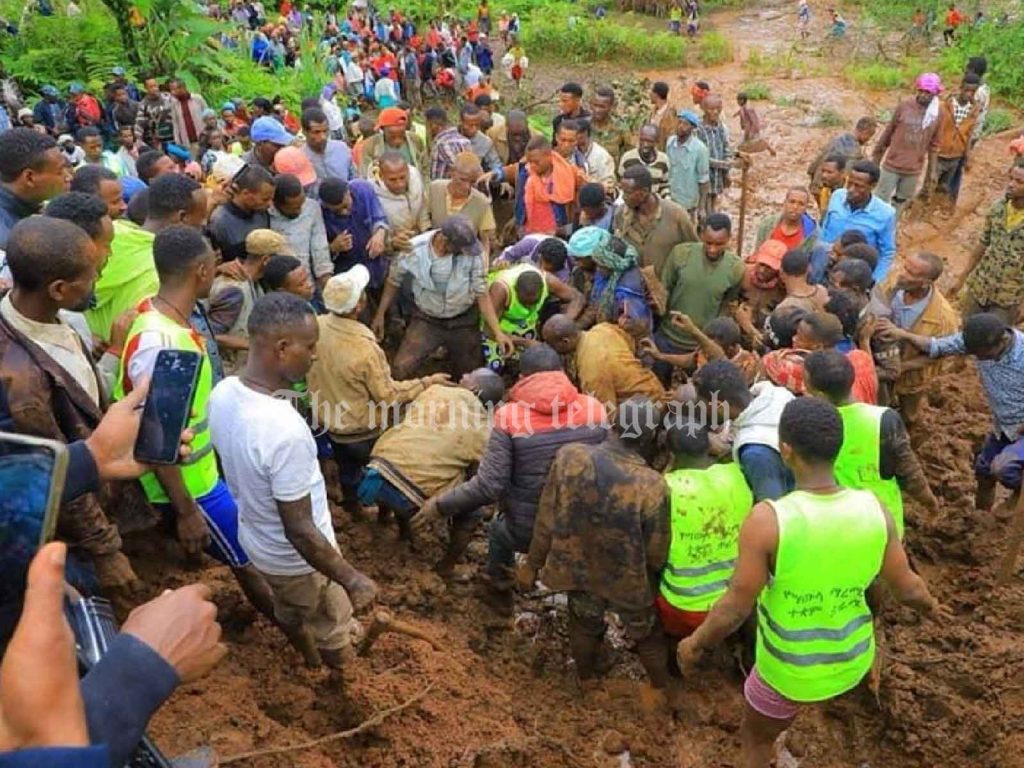
The death toll from a devastating landslide in southern Ethiopia has reached 257, according to a United Nations report released on Thursday. The UN’s humanitarian agency, OCHA, warned that the number of fatalities could climb to 500 as rescue efforts continue in the remote area of Kencho Shacha Gozdi.
Rescue teams, including local residents using hand tools and shovels, are working tirelessly to locate survivors and recover bodies from the extensive mud. The landslide, which occurred after heavy rainfall on Sunday, is now the deadliest recorded in Ethiopia’s history.
More than 15,000 people are at risk of displacement due to the threat of additional landslides. This group includes 1,320 children under five years old and 5,293 pregnant women or new mothers. The Ethiopian Red Cross Society has begun delivering essential supplies to the affected area, though access remains challenging.
The landslide struck approximately 480 km from Addis Ababa, the capital. Most casualties occurred when locals rushed to assist after the initial landslide, only to be caught in subsequent mudslides. Villagers have been transporting bodies using makeshift stretchers while mourners gather near a row of shrouded bodies awaiting burial.
Currently, 12 injured individuals have been hospitalized, and at least 125 people have been displaced and are sheltering with other residents. The exact number of missing individuals remains unclear.
UN Secretary-General Antonio Guterres has expressed deep sadness over the disaster. UN spokesman Stephane Dujarric announced that the United Nations and its partners are working with the Ethiopian government to assess the damage and meet the humanitarian needs of the affected populations.
Senait Solomon, communications head for the South Ethiopia regional government, mentioned that the landslide site was prone to such disasters, despite ongoing conservation efforts including tree planting.
The disaster underscores Ethiopia’s vulnerability to climate-related crises, with over 21 million people in the country reliant on humanitarian aid due to ongoing conflicts and natural disasters. The recent landslide follows a similar but smaller-scale event in May that resulted in over 50 deaths.
In comparison, the deadliest landslide in Africa occurred in Sierra Leone’s Freetown in August 2017, claiming 1,141 lives, while mudslides in Uganda’s Mount Elgon region killed over 350 people in February 2010.




